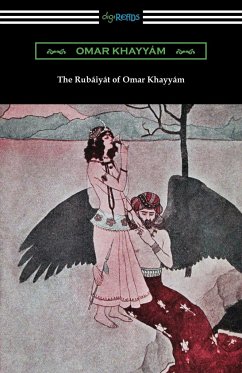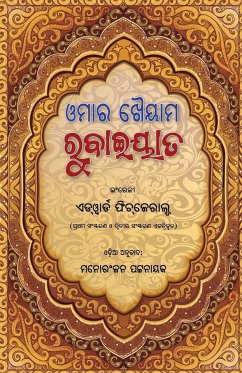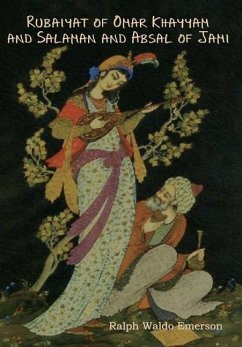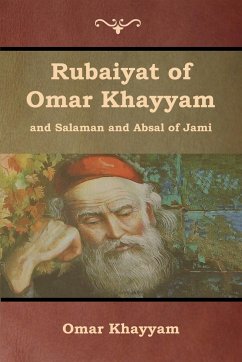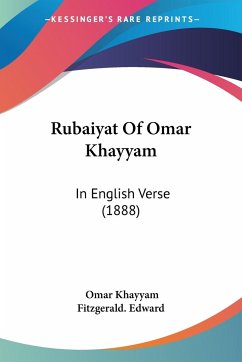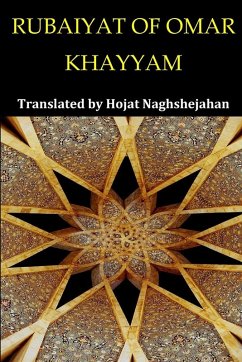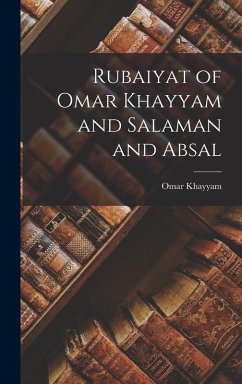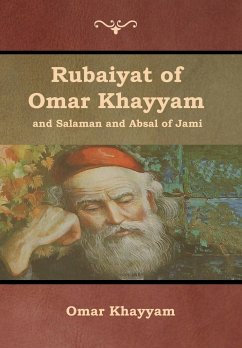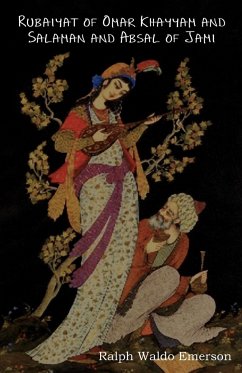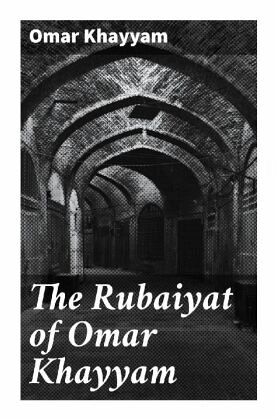
The Rubaiyat of Omar Khayyam
Versandkostenfrei!
Versandfertig in 6-10 Tagen
6,99 €
inkl. MwSt.

PAYBACK Punkte
3 °P sammeln!
The Rubaiyat of Omar Khayyam is a masterful collection of quatrains that transcends mere poetic form to explore profound themes of existence, love, and the nature of time. Set against the backdrop of 11th-century Persia, Khayyam's lyrical verses encapsulate a philosophy of carpe diem, urging readers to savor life's fleeting pleasures amidst the inevitability of mortality. The work's distinctive use of imagery and allegory, combined with its rhythmic elegance, positions it firmly within the rich tradition of Persian literature while also appealing to Western sensibilities, particularly followin...
The Rubaiyat of Omar Khayyam is a masterful collection of quatrains that transcends mere poetic form to explore profound themes of existence, love, and the nature of time. Set against the backdrop of 11th-century Persia, Khayyam's lyrical verses encapsulate a philosophy of carpe diem, urging readers to savor life's fleeting pleasures amidst the inevitability of mortality. The work's distinctive use of imagery and allegory, combined with its rhythmic elegance, positions it firmly within the rich tradition of Persian literature while also appealing to Western sensibilities, particularly following Edward FitzGerald's influential translations in the 19th century, which popularized the quatrains across the globe. Omar Khayyam was not only a poet but also a mathematician, astronomer, and philosopher, which imbued his writings with a rare depth of insight into the human condition. His diverse intellectual pursuits, particularly his understanding of the cosmos and existential thought, provided fertile ground for the contemplative nature of The Rubaiyat. The synthesis of these disciplines reflects an enlightened perspective, ultimately revealing the timeless struggles between the ephemeral pleasures of life and the inexorable passage of time. For readers seeking both beauty in language and a philosophical examination of life's transience, The Rubaiyat of Omar Khayyam is indispensable. This collection invites contemplation on the human experience through its enchanting verses, making it an essential addition to any literary canon and a perennial source of inspiration for those pondering the mysteries of existence.




